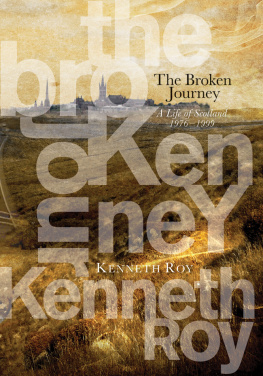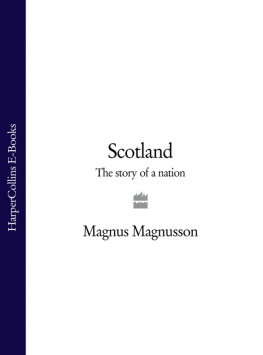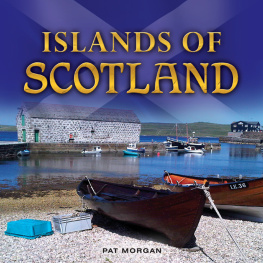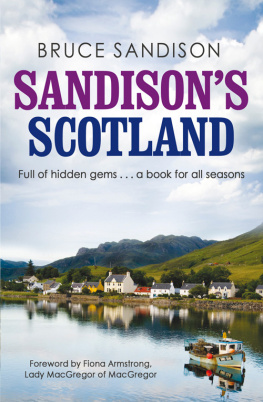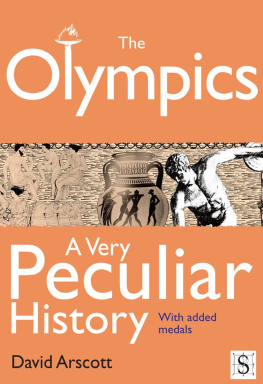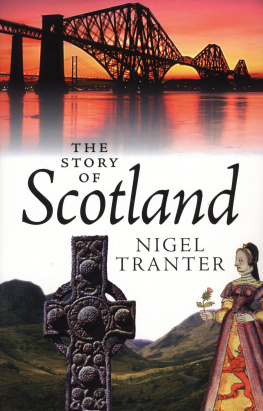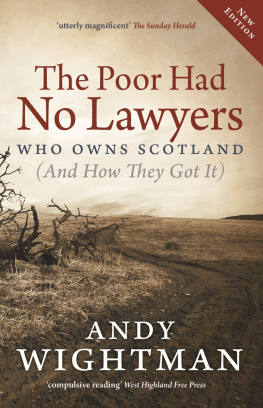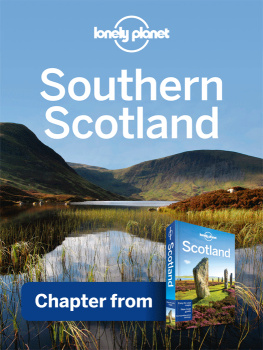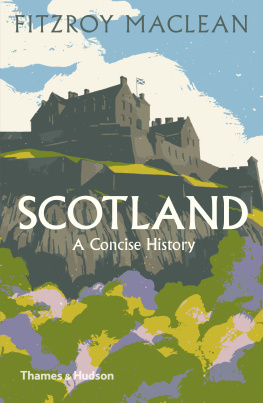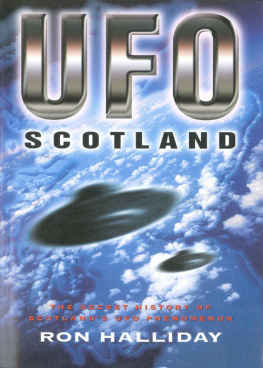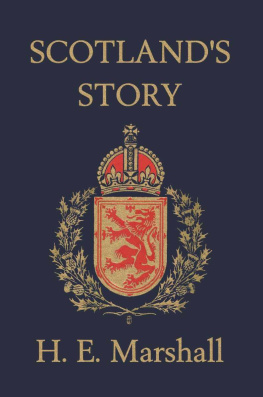THE BROKEN JOURNEY
by the same author
Travels in a Small Country
Conversations in a Small Country
The Closing Headlines
Alastair Hetherington: A Man of His Word (Editor)
Both Sides of the Border
The Invisible Spirit: A Life of Post-War Scotland 19451975
First published in 2016 by
Birlinn Ltd
West Newington House
10 Newington Road
Edinburgh
EH9 1QS
Kenneth Roy 2016
British Library Cataloguing in Publication Data. A catalogue record
for this book is available from the British Library.
eISBN: 978 0 85790 342 6
ISBN: 978 1 78027 425 6
All rights reserved. No part of this publication may be reproduced, stored in a retrieval system, or transmitted in any form or by any means, electronic, mechanical, photocopying, recording, or otherwise, without the prior permission of the copyright owner.
Set in Adobe Garamond Pro at Birlinn
Printed and bound by
Gutenberg Press Ltd, Malta
CONTENTS
PREFACE
I
I HAVE SUB-TITLED THIS A LIFE OF SCOTLAND. THE STARTING POINT is 1976, and the book ends with the re-establishment of the Scottish Parliament a few months short of the new millennium. It is an account of how the country looked to one individual its author in the last quarter of the twentieth century. But it makes no claim to be a definitive history of modern Scotland. It lacks the necessary clinical detachment.
Formally this book is a sequel to The Invisible Spirit, which covered the period 1945 to 1975. That too was called A Life. That too had the structure of a chronological narrative. When I started to write the present volume, I was picking up where I had left off. But I quickly realised that, despite these superficial similarities, I was writing a different sort of book: a more intensely personal one.
I said in the preface to The Invisible Spirit that it had been motivated by a curiosity about my own country: It was a belated attempt to give me an insight that I had always lacked the knowledge of what was going on in Scotland in the early part of my life when I was too young to understand or care. Before I wrote the book I was more familiar with Robert Burnss Ayrshire, the main figures of the Scottish Enlightenment and the clearances from the Highlands than I was with the events and influences of a later and not much documented Scotland the one in which I was brought up.
While The Invisible Spirit was genuinely exploratory, with The Broken Journey I was examining more recognisable territory. By 1976 I had joined the BBC as a journalist and was presenting the nightly news programme, Reporting Scotland; throughout the period, on air or in print, I was a professional observer of the events that now form the subject matter for this book. Sometimes they felt so close that it was almost as if I was writing about current affairs until I visited that last resting place of worldly ambition, the index, and noted that most of the people I knew and interviewed were already dead. I am too close to the project to know if this intimate knowledge of Scotland and its figures of influence has been a help or a hindrance. Perhaps it has been a bit of both.
II
It says a great deal about the nature of Scottish life between 1976 and 1999 that, for this assignment, unlike the last, so much of my study consisted of reading, analysing and deconstructing the reports of official inquiries into tragedies and scandals (often the two were indivisible). I have to wonder if any country, short of an actual war zone, suffered more misfortune than Scotland in so short a time. At one stage in the story, after Piper Alpha but before Lockerbie, an interval of only six months, the suffering was so intense that I felt obliged to give the reader a break.
Three of the main documents on which I drew were: Report of the Inquiry into the Removal of Children from Orkney in February 1991 (HMSO, 1992), Report of an Inquiry into an Allegation of a Conspiracy to Pervert the Course of Justice in Scotland (HMSO, 1993), and The Public Inquiry into the Shootings at Dunblane Primary School on 13 March 1996 (HMSO, 1996). For two reasons these reports and in the case of Dunblane the transcript of evidence deserve even closer scrutiny than I have been able to give them. The first is the detail with which devastating information is imparted, including important testimony that never achieved wide circulation; the second is the unsatisfactory conclusions reached in every case. I read also the Report of the Inquiry into the Liaison Arrangements between the Police, the Procurator Fiscal Service and the Crown Office and the family of the deceased Surjit Singh Chhokar by Dr Raj Chandoo, presented to the Lord Advocate in 2001. This likewise was enlightening, not so much for its flawed indictment of institutional racism as for its perspective on the behind-the-scenes dynamic of the criminal justice system.
For the chapter, Lives of the Young, I read not only the report of the fatal accident inquiry into the deaths of young women in Cornton Vale Prison but the full transcript of evidence, which enabled me to include extracts from eyewitness accounts of the regime there; and I had been sufficiently intrigued by the fatal drug-related incidents at the nightclub known as Hanger 13 to attend the public inquiry in its entirety and subsequently talk at length to the family of one of the young men who died. The chapter on Lockerbie, Thunder in December, was partly informed by personal experience of the public inquiry and shameless eavesdropping on the lawyers in cabal over dinner at the Station Hotel, Dumfries. In writing the chapter on Dunblane, One of Us, I was constantly reminded of my many conversations with the father of one of the victims and of the furious reaction of fellow journalists when I delivered a speech at a seminar in London suggesting that the media bore some degree of culpability for the distress of the parents that day. For the chapter on the case of James Nelson, Forgiveness, I remembered how it felt to be in the Assembly Hall as a convicted murderer persuaded an impressionable Kirk that he was fit to be a minister.
Paradoxes, there were a few: the crushing dullness of Bruce Millan in front of camera, yet the realisation, when I came to write about him, that he was an unusually courageous Secretary of State for Scotland; the fragility of the miracle man John Fagan before the canonisation of the Blessed John Ogilvie, whose intercession the Roman Catholic Church believed had cured him it seemed Mr Fagan would expire at any moment, yet he survived everyone in his immediate circle; the benign presence in my life of footballs Ernie Walker, yet the knowledge that I would have to write disobliging things about him; how the private warmth of such characters as MacDiarmid and McGahey was completely at odds with their public persona. But it was not possible to be amused by the central paradox of the book: the obsession of the political class with the constitutional question to the exclusion of so much else that should have received intelligent consideration.
III
The title is derived from an impression, or series of impressions, of broken journeys. The children of Dunblane who went to school one spring morning but never returned; the students on their way back to the United States for Christmas who never got further than the rooftops of a small town in Dumfriesshire; the ordinary men of Piper Alpha, far from home, who never completed their shift but perished on a boiling oil rig; the vulnerable girls held on remand in an adult prison who could not bear to go on living; the Saturday night clubbers, bumping along the back road to Ayr, whose bodies would soon be wrecked by drugs all of these were broken journeys, and all of them told us something troubling about the Scotland of the period.

